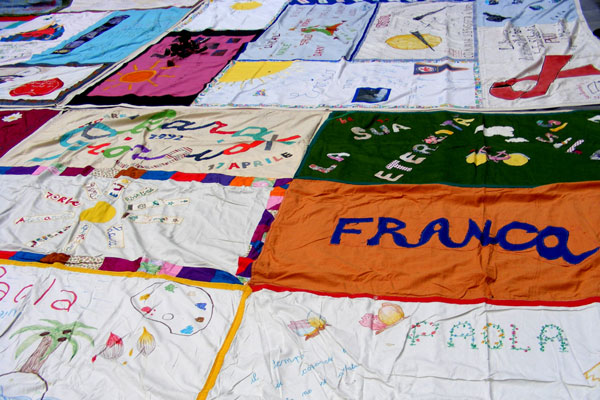
I'm pleased to welcome Celeste Watkins-Hayes, the third contributor to our Off the Grid blog. She teaches sociology and African-American Studies at Northwestern, and comes to us at a good time. Her current research focuses on women in Chicago with HIV and how that impacts health and finance in their daily lives; meanwhile, today is World AIDS Day, so the subject is a topic of conversation in the area. To get you caught up before she starts writing, here are five good reads on HIV/AIDS in Chicago.
* "Big Money, Few Results: Illinois has spent millions to fight HIV and AIDS, but African Americans still struggle to receive needed treatment," Jeff Kelly Lowenstein, Chicago Reporter:
This is not a story of unmitigated disaster or wanton neglect. Instead, it is one of honorable intentions and resources provided–but many road blocks existing on the way to success. The state of Illinois has increased its funds by tens of million of dollars to combat HIV and AIDS–and created two funding sources designed to combat the epidemic among African Americans–but it still has failed to adequately meet the needs of its black residents with the virus.
* "Family hopes state enables more international adoptions: Joliet couple see adding more kids as part of their religious mission," Manya Brachear, Chicago Tribune:
Five years ago, adopting a child with HIV seemed like a hopeless endeavor, even as orphanages in countries ravaged by HIV/AIDS overflowed with an entire generation of children who lost their parents to the disease, she said. Some of those children also carry the virus, transmitted during pregnancy, birth or breast-feeding.
* "Case Shakes Theories of AIDS Origin," John Crewdson, Chicago Tribune, October 1987:
According to contemporary diagnostic criteria, Kaposi's sarcoma in a patient younger than 60 is almost certain to signal a case of acquired immunodeficiency syndrome. But on May 16, 1969-the day that Robert died-nobody had ever heard of AIDS.
The doctors who attended Robert R., (and who agreed to talk about the case in exchange for an agreement to withhold his last name) and for whom his case has presented a continuing puzzle, now believe the 15-year-old youth from the St. Louis ghetto was infected with the same human immunodeficiency virus (HIV) that has since been linked to AIDS.
* "Senate Votes to Ban AIDS Posters From CTA," Chicago Tribune, Rick Pearson and Paul Wagner, June 1990:
On a 49-12 vote, the Senate approved and returned to the House a measure that would prevent the CTA from displaying any poster "showing or simulating physical contact or embrace within a homosexual or lesbian context" where persons under 21 can view it.
The plan would make displaying such a poster a petty offense, punishable by a fine of $200 for each day it is shown.
The measure is an outgrowth of criticism raised by some Chicago aldermen over a proposed AIDS-awareness campaign created by an organization known as Arts Against AIDS, which sought to display a poster on and inside CTA buses and rapid transit trains as part of a public service campaign.
* "More Black Churches Take on AIDS Battle: As infections rise among blacks, compassion replaces condemnation," Dahleen Glanton, Chicago Tribune:
On a recent Sunday morning, the Rev. Stephen Thurston stood on the pulpit before a packed New Covenant Missionary Baptist Church in Chicago while a health care worker swabbed his upper and lower gums. After his sermon, she announced the results: Thurston had tested negative for HIV.
Photograph: orsorama (CC by 2.0)


